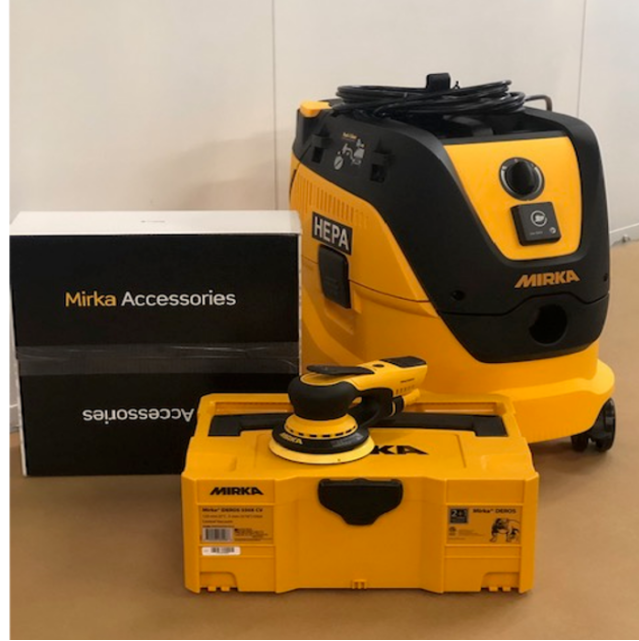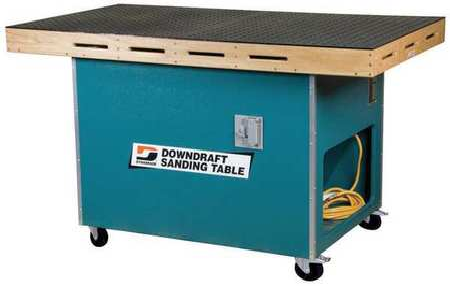How can Dust Collection Improve Manufacturing Efficiency and Health of the Operator?
How can Dust Collection Improve Manufacturing Efficiency and Health of the Operator?
Written by: Brett Hutchinson
Dust Collection has been in the manufacturing world for decades. However, in the last few years we have seen new health and application questions arise about the harmful effects of dust.
“How does dust impact my respiratory health?”

This question is asked frequently by most new customers who are considering a dust collection system. Researchers have examined the harmful effects of both large and small particulates in the air and how it affects respiratory health. Most modern dust extractors collect 95%-99.9% of these particulates. Large particulates are harmful but generally, if not collected, fall to the floor quickly and don’t tend to float in the air. The biggest health concern though, is caused by the small particles that tend to float in the air for an extended period of time. This is where dust extractors that include HEPA filters excel at collecting these particles.
“What is a HEPA Filter?”

High Efficiency Particulate Air (HEPA) filters are able to trap 99.97% of particles that are 0.3 microns or larger. Studies have shown these 0.3-micron particles are some of the most troublesome to human lungs. HEPA filter technology has increased steadily over time and is now popular throughout countless industries. Most often you do not see the particles that a HEPA filter collects. However, you and your operators can rest assured knowing the benefits from working with HEPA technology.
“How does dust collection improve shop efficiency?”
Some of our current customers have reaped the benefits of dust collection. One customer in western Wisconsin switched their cabinet/solid surface shop over to Mirka Deros Dust Free Systems. Previously they spent nearly 30 minutes every day cleaning up their “direct” workspaces. That was followed by an extensive hour cleanup every Friday in the higher traffic areas that were neglected all week long. In total, every operator lost approximately three hours every week, just on cleaning alone. Additionally, they had to hire a cleaning crew once a year to do a week long thorough cleaning. After just one year with Mirka Deros Dust Free Systems, our customer saved nearly 150 operating hours per individual and increased output by over 10%!
Another customer in eastern Wisconsin saved $9,000 annually by switching to Dynabrade downdraft tables. Instead of having to hire a cleaning crew to vacuum their facility every year they are now able to apply that money to improve other processes.

“What types of dust collection do you provide?” 
We offer dust collection for a wide range of industries --wood, aluminum, fiberglass, composites and a variety of metals. The most common forms are portable dust extractors, downdraft tables and self-generated sanders. Though there are other options, like central dust collection, it is often very expensive to install throughout the facility and limits the portability of workstations.
Portable dust extractors are a simple, specific version of a “shop vac,” offered in either pneumatic or electric. These tend to be associated with wood, fiberglass and composites. However, they do offer metal and aluminum portable dust extractors. Overall, portable dust extractors are the best option considering efficiency and portability.
Electric downdraft tables extract the dust falling from the work surface and are a great option for almost all industries. Downdraft tables come in a variety of sizes and options like tabletop materials (anti-slip, aluminum, MDF). Both wet sanding and dry sanding applications are also available options.
Self-generated sanders create their own form of vacuum that extracts the dust from the work surface and expels it through a wide collection port on the back of the tool into a bag. They are available in pneumatic or electric options and are, by far, the most mobile option for your dust collection needs. However they provide a fraction of the cfm’s (cubic feet per minute, measurement of airflow) that the other options provide.
For more information on dust collection, please contact us if you would really like to LEAVE YOUR COMPETITION IN THE DUST!
